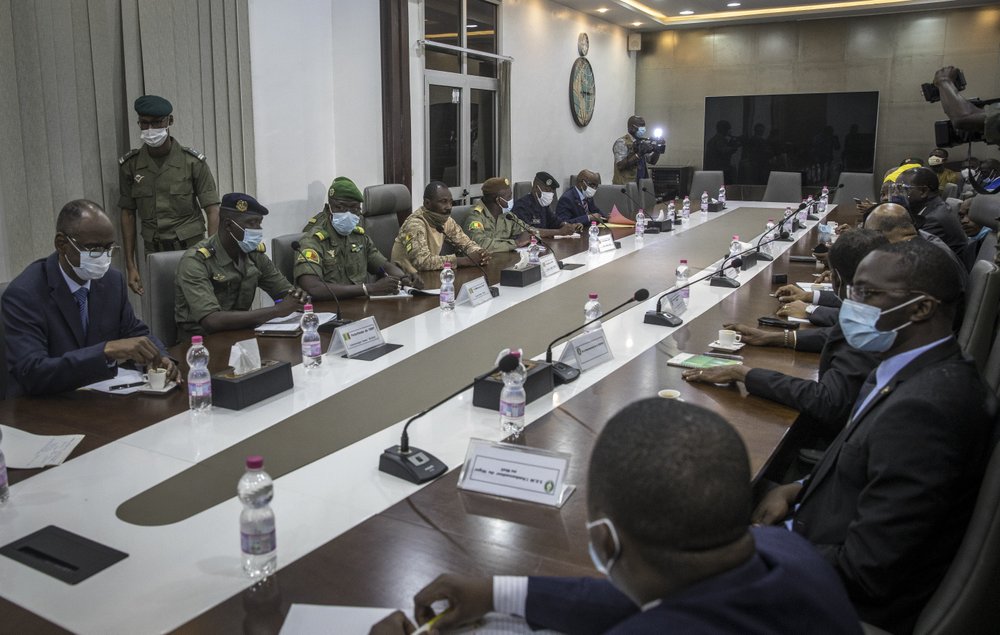
West African leaders press for Mali president’s release

West African leaders visiting Mali pressed Sunday for the release of ousted President Ibrahim Boubacar Keita amid mounting speculation that he could be flown out of the country after thousands showed support for the military coup that toppled him.
The 75-year-old Keita has been in the custody of the ruling military junta for five days at the barracks where the government overthrow originated. The 15-nation regional bloc known as ECOWAS has demanded Keita’s reinstatement, though with a wave of public support for his ouster it appeared increasingly unlikely Sunday he would return to power.
ECOWAS had earlier demanded that Keita be reinstated and said it would mobilize a regional standby military force. But a demonstration by thousands of Malians showing their support for the coup in the streets of Bamako on Friday made it more difficult for the regional leaders to sideline the junta.
Among the destinations where Keita could go is neighboring Senegal, which hosted Amadou Toumani Toure, the last democratically elected Malian president overthrown in a similar 2012 coup.
African countries and the wider international community have expressed alarm over the coup d’etat, which deposed Keita three years before his final term was due to end. Mali has been fighting against Islamic extremists with heavy international support for more than seven years, and jihadists have previously used power vacuums in Mali to expand their territory.
The high-level delegation, led by Nigeria’s former president, Goodluck Jonathan, held talks with the junta, including Col. Assimi Goita, who has declared himself the group’s leader. The regional delegation also met with Keita and the other detained officials.
After the brief meetings, few details were given, but Jonathan did say that Keita was doing well.
“We have seen the president IBK and he is very well,” Jonathan said, referring to Keita as many do by using his initials.
Hours after Keita was detained Tuesday after his home, the democratically elected president announced his resignation on state broadcaster ORTM saying he did not want any blood to be shed for him to stay in power. By early Wednesday, soldiers took to the airwaves calling themselves the National Committee for the Salvation of the People.
While the new military leaders have insisted they intend to hand over power to a civilian transitional government, West Africa has seen a large number of putschists prolong the transitional period so that the military stays in power. In the case of Mali, it took nearly 18 months after the 2012 coup for democratic elections to resume.
It was Keita himself who won that 2013 vote in a landslide, only to see his popularity plummet after his 2018 reelection as the Malian army faced punishing losses from jihadist attacks. Then after dozens of legislative elections were disputed this spring, demonstrators began taking to the streets calling for his resignation. He offered concessions and regional mediators intervened, but his opponents made it clear they would accept nothing short of his departure.
On Friday, Mali’s opposition coalition, the M5-RFP, welcomed the ouster of Keita insisted they remained “deeply attached to democracy.”






